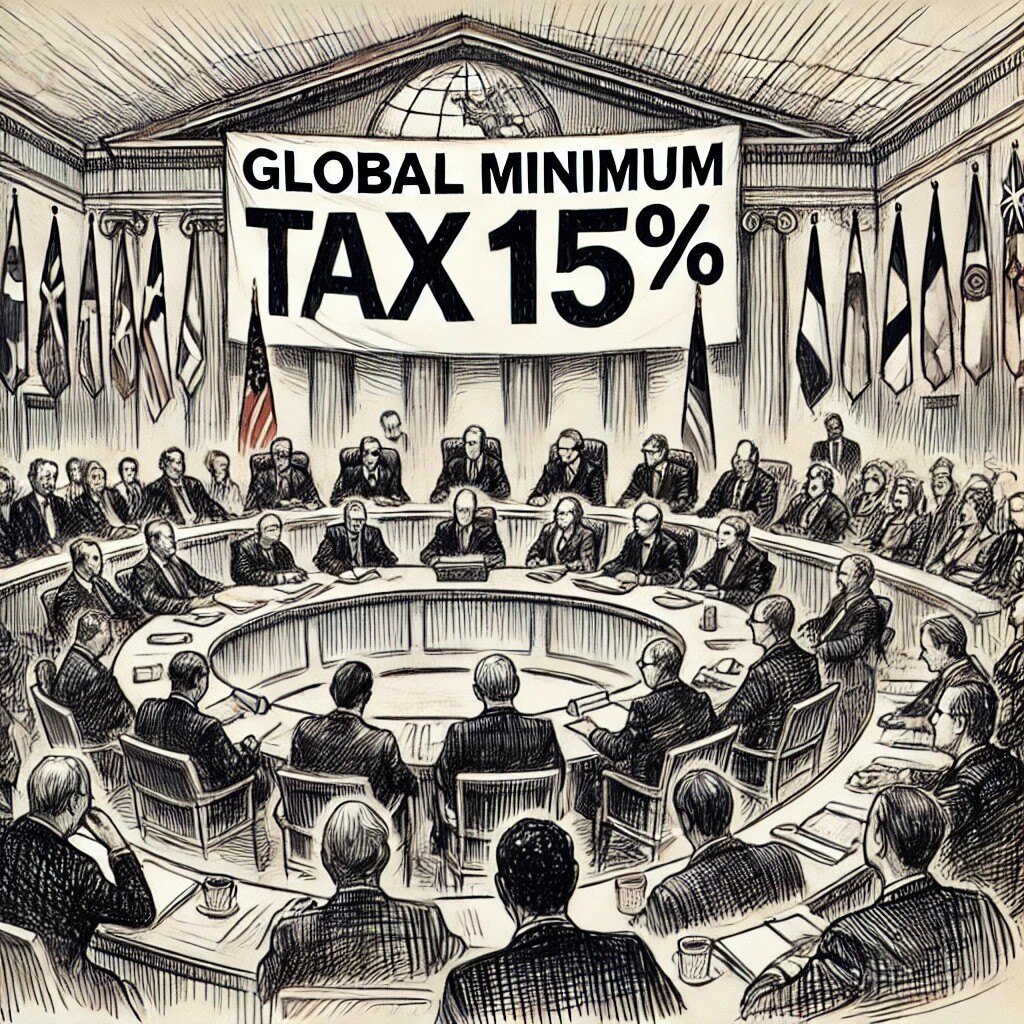
How Does the Global Minimum Tax of 15% Affect SMEs and Business Organization?

The global minimum tax of 15%, promoted by the OECD and G20, is designed to curb tax competition between countries and prevent large multinationals from shifting their profits to low-tax jurisdictions. However, while it primarily targets companies with revenues exceeding €750 million, its effects could also impact SMEs and entrepreneurs with international structures. In this article, we explore the key implications of this tax and why it could change the global business landscape.
How Does the Global Minimum Tax Work?
The system establishes that if a multinational pays less than 15% in taxes in a country, its parent company (or, failing that, the countries where it operates) can apply a top-up tax to reach that minimum. This is achieved through three main mechanisms:
- Income Inclusion Rule (IIR): If a subsidiary in a low-tax country pays less than 15%, the parent company must pay the difference in its home country.
- Undertaxed Payments Rule (UTPR): If the parent company does not pay the difference, other countries where it operates can claim their share of the tax.
- Qualified Domestic Minimum Top-Up Tax (QDMTT): Countries can apply their own top-up tax to ensure that companies pay 15% before other governments claim it.
Simply put, if a country offers a corporate tax rate below 15%, the tax benefit is diluted because the difference will be collected elsewhere.
Why Does This Tax Affect SMEs?
Although the application threshold is high, its effects may extend beyond large multinationals. The main reasons are:
- Reduced Incentives for Tax Optimization
Large corporations often work with suppliers and partners operating in low-tax jurisdictions. If big companies lose these incentives, they may require their suppliers (including many SMEs) to relocate their tax base or adjust costs, affecting the competitiveness of small businesses that rely on these clients.
- Pressure to Increase Taxes on SMEs
Countries that currently offer attractive tax regimes may decide to raise their tax rates to ensure that fiscal revenues are not captured by other nations. This could mean higher tax rates for local SMEs that previously benefited from these schemes.
- Increased Complexity in Business Structure
Companies using business models with multiple entities in different jurisdictions may face more barriers and administrative costs due to stricter compliance requirements. This could discourage international expansion for startups and SMEs seeking to leverage tax advantages in other countries.
- Greater Tax Control and Regulation
With the global minimum tax, governments will have more incentives to strengthen oversight of international operations. This could translate into increased audits and regulations, also impacting SMEs engaged in cross-border activities.
Is the Global Minimum Tax a Good Idea?
The debate is open. On one hand, this tax could reduce tax avoidance by large corporations and promote greater tax fairness. However, it could also affect innovation, entrepreneurship, and tax competition between countries, raising the following questions:
- Should it also apply to smaller businesses in the future?
- Will it be counterproductive for the global economy by reducing competition between jurisdictions?
- Will it ultimately drive the creation of new tax structures to circumvent it?
Conclusion: What Should SMEs Do?
While the 15% global minimum tax does not directly affect SMEs, its repercussions could be felt in the global economy and tax optimization strategies. For companies with an international presence, it is crucial to:
✅ Assess tax structures and their long-term viability.
✅ Closely monitor regulatory developments in each country where they operate.
✅ Diversify markets to mitigate regulatory risks.
✅ Consider specialized advice to adapt their growth plan.
What do you think? Will this tax really curb tax avoidance by large companies, or will it only increase complexity and costs for everyone? We’d love to hear your opinion in the comments! 🚀

